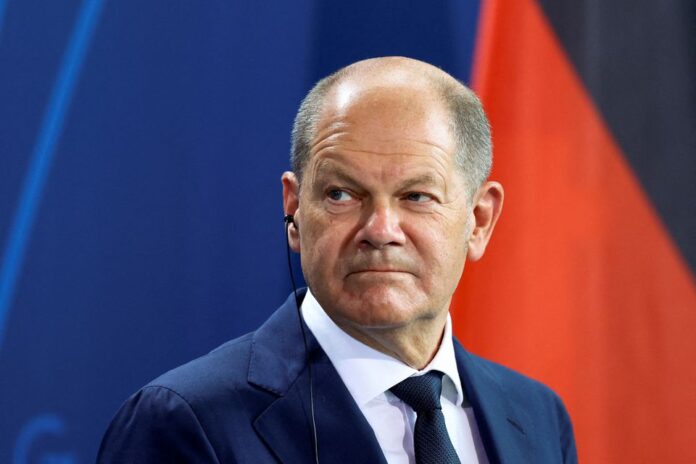Chancellor Olaf Scholz faces a delicate balancing act this week at German-Chinese government consultations in Berlin, seeking to maintain good ties with Germany‘s largest trade partner while complying with a G7 pledge to “de-risk” from Beijing, according to Reuters.
Scholz receives Chinese premier Li Qiang for dinner in the chancellery on Monday evening ahead of the seventh round of bilateral, biennial talks which are also the first face-to-face session since the COVID-19 pandemic.
The summit takes place on Tuesday in the chancellery before Li and the Chinese ministers for trade and reform attend the German-Chinese forum for economic and technological cooperation.
The fact Li chose Germany for his first overseas trip as premier reflects the special relationship between Europe and Asia’s largest economies. Rapid Chinese expansion and demand for German cars and machinery fuelled Germany’s own growth over the past two decades.
China became Germany’s single biggest trade partner in 2016 and is a core market for top German companies including Volkswagen, BASF and BMW.
The relationship has however come under strain amid concerns in the West about rising Communist party control over society and the economy, unfair competition and Beijing’s territorial ambitions.
Scholz joined other leaders of the Group of Seven (G7) rich democracies last month in pledging to “de-risk” without “decoupling” from China.
The meaning of “de-risking” however remains to be defined, say analysts, with China hawks pleading for a general reduction of business and doves singling out areas like critical minerals.
The talks come after Antony Blinken on Sunday became the first U.S. secretary of state to visit China in five years, stressing the importance of keeping open lines of communication to reduce the risk of miscalculation.
They also come as Germany’s foreign ministry finalizes a paper on its approach to China, which is expected to reflect the tougher stance it outlined in its first national security strategy published last week.
China poses a growing threat to global security, aggressively claiming supremacy in Asia and seeking to use its economic might to achieve political goals, the strategy said.
The government is urging companies to diversify away from China but many German CEOs have warned of the risks of cutting or reducing links with the world’s second-biggest economy while Germany is in recession.
The Chinese delegation will meet with some of those CEOs on Monday, according to people familiar with the plans.
On Tuesday, after the government consultations, it will head to Munich to meet regional officials and corporate executives reflecting the level of Chinese business with the southern German state of Bavaria.
The Chinese delegation will head to Paris for an official visit and to attend a financial conference on June 22 to 23.


